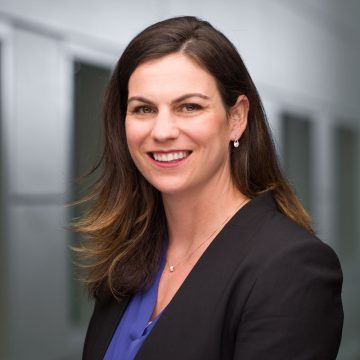Findings from a new study conducted by a team of researchers at Dartmouth’s Geisel School of Medicine and published in the July issue of Health Affairs, shows that while the number and variety of contracts held by Accountable Care Organizations (ACOs) have increased dramatically in recent years, the proportion of those bearing downside risk has seen only modest growth.
ACOs, which use financial incentives in an effort to improve patient care and reduce healthcare costs, have become one of the most commonly implemented value-based payment models by payers. In 2018, there were more than 1,000 ACOs nationally, covering an estimated 33 million lives and including more than 1,400 different payment arrangements.

“Debates continue around the impact of the ACO model, including the contribution of downside risk—where ACOs that fail to meet their financial targets share responsibility with payers for losses,” explains Carrie Colla, PhD, an associate professor at The Dartmouth Institute for Health Policy and Clinical Practice and senior author on the study.
To help improve understanding of the rapid growth and evolution of ACOs, the research team analyzed ACO structure and contracts over a six-year period (2012-18) using data from the National Survey of Accountable Care Organizations.
They found that while the number of ACOs had grown fivefold during that time period, the proportion of ACOs taking on downside risk remained relatively stable—increasing from 28 percent in 2012 to 33 percent in 2018. Overall, the majority were upside-only risk contracts, which reward cost and quality improvements but do not financially penalize poor performance. There is concern among industry experts that these kinds of contracts might not provide adequate incentives to boost ACO performance.
When examining the leadership, services, and size of ACOs, the researchers reported that those bearing downside risk were less likely to be physician-led or physician-owned, more likely to be part of larger, integrated delivery systems (that included hospitals), had more participating physicians, and were more likely to provide services such as inpatient rehabilitation, routine specialty care, and palliative or hospice care.
In addition, the researchers found that ACOs with downside risk contracts were more likely to have participating providers who had experience with other forms of payment reform (such as bundled or capitated payments) and had more ACO contracts across payer types (Medicare, commercial, and Medicaid).
“Overall, the increasing number of ACO payment contracts per ACO suggest an increase in the breadth of value-based financial incentives,” says Colla. “However, there has been relative stagnation in the proportion of ACOs with deeper financial incentives—with only a third (in 2018) choosing contracts with downside risk.
“Understanding the potential importance of downside risk contracts in increasing the impact of the ACO model, the hesitancy of ACOs to adopt them, and the levers that could be used to strengthen both the breadth and the depth of incentives will be key to moving the ACO model forward,” Colla says.
This study received support from the following funding organizations: the Commonwealth Fund; the National Institute of Mental Health of the National Institutes of Health; and the California Health Care Foundation.
Founded in 1797, the Geisel School of Medicine at Dartmouth strives to improve the lives of the communities it serves through excellence in learning, discovery, and healing. The Geisel School of Medicine is renowned for its leadership in medical education, healthcare policy and delivery science, biomedical research, global health, and in creating innovations that improve lives worldwide. As one of America’s leading medical schools, Dartmouth’s Geisel School of Medicine is committed to training new generations of diverse leaders who will help solve our most vexing challenges in healthcare.